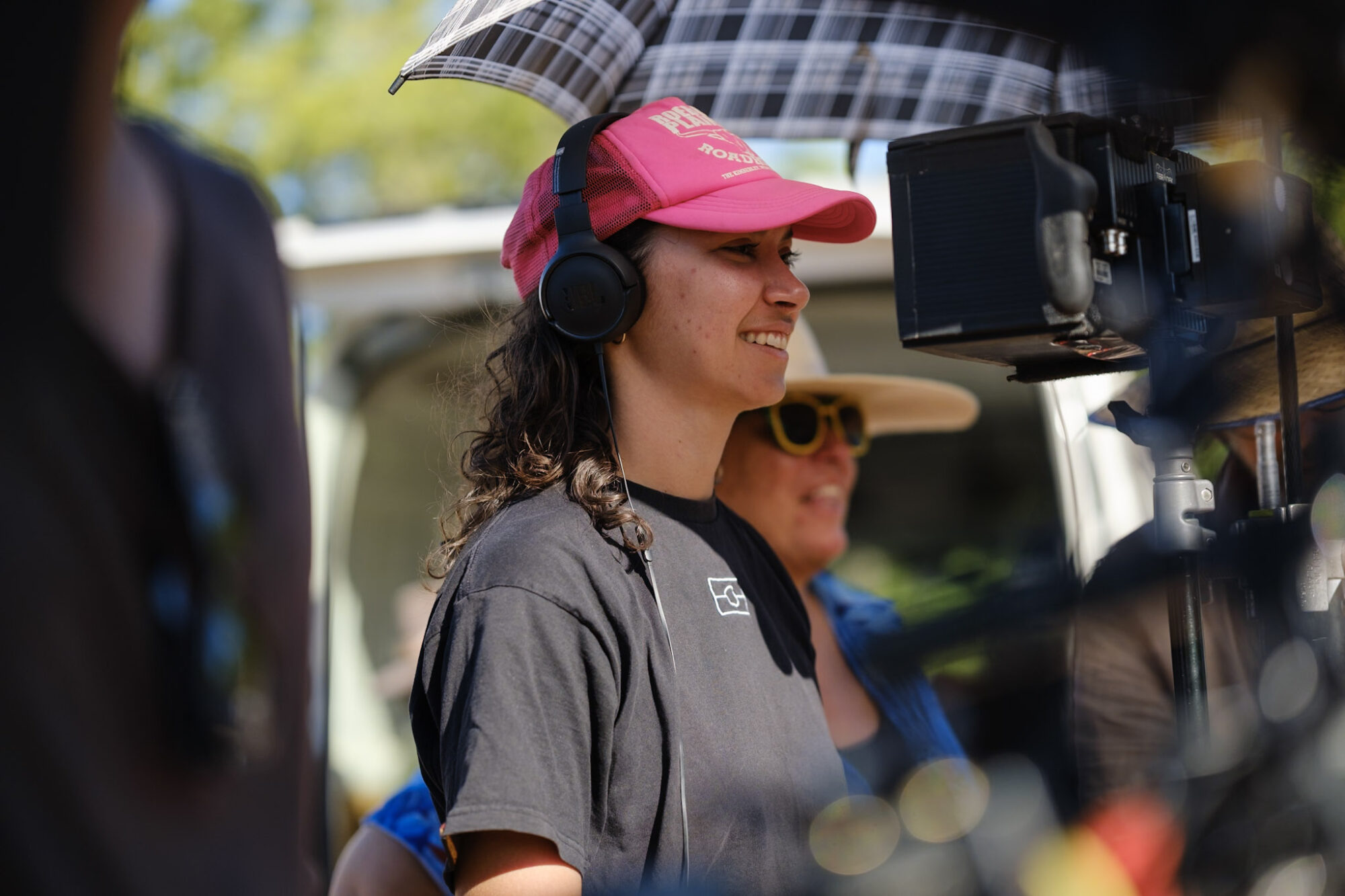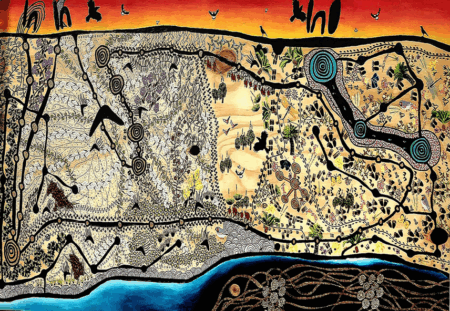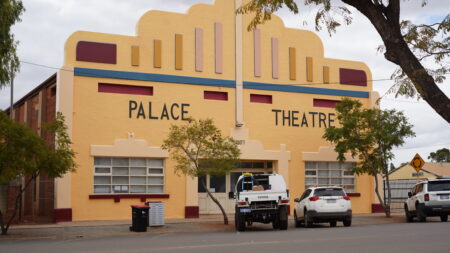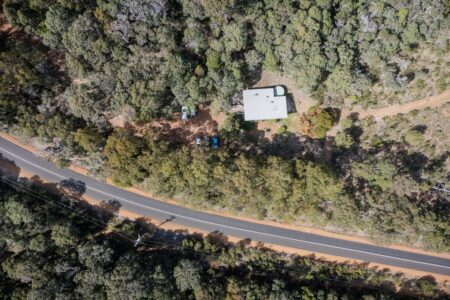Writer & Director Kimberley Benjamin Features Awarded Work at CinefestOZ
Named after the very region that shaped her, Kimberley Benjamin, is a proud Yawuru, Bardi and Kija filmmaker from Broome. Kimba (as she is known by her friends), has been collecting and preserving stories since she was old enough to muck around with a camcorder and Powerpoint on the home computer.
“I’ve always wanted to create stories that make a connection,” she says, “whether that’s our mob watching and resonating, feeling seen and laughing, because joy is so important. Or if it’s for others to gain a deeper understanding and respect for the power of our stories.”
Her latest work, ‘Re-imagining Our Futures: birthing,’ is a testament to this philosophy. The 12-minute short documentary, which will be screened at this month’s CinefestOZ in Busselton, has already garnered significant recognition, winning the Māota People’s Choice Award for short documentary 2025 at Maoriland Film Festival and Innovation in Short Film at the 2024 WA Screen Culture Awards.
The film, created through an initiative with Screen Australia and Ten Play, explores the concept of giving young Aboriginal people a chance to dream up their future. Kimberley explains that the project involved “facilitating discussions about how Aboriginal people imagine their futures outside of western constraints and allowing them to respond creatively to it.”
For this project, Kimberley and her team engaged Kalinda Palmer, a Nyikina woman from Derby with her young son, Jalmarra. Kalinda’s dream is to one day birth on Country under a tree, just the way her Pop was born.
“She wanted to learn more about traditional birthing practices, so the film follows her learning from her Elders and reflecting on her own birth story, then dreaming up her future for herself, her family, her community” Kimberley explained. “We were able to engage Kalinda as a creative producer on the film – so that she was a significant part of the direction and process of how her story was told.”
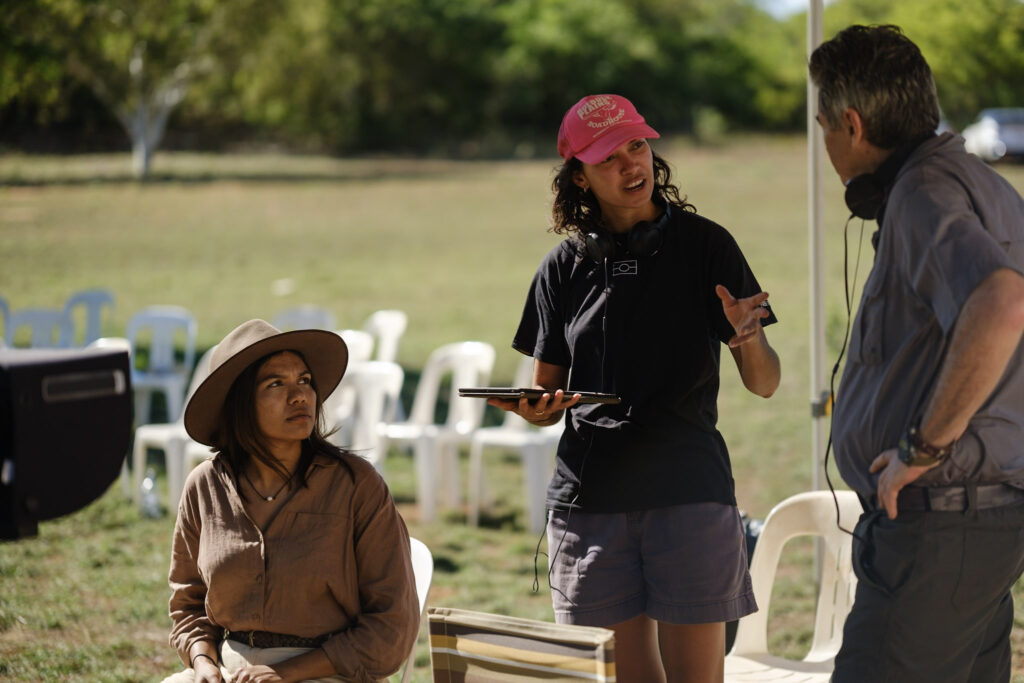
Broome Beginnings
To understand Kimberley’s storytelling instincts is to understand Broome itself. It’s a place of extraordinary cultural confluence where Chinese, Japanese, Malaysian, and Filipino influences blend with Aboriginal traditions against a backdrop of turquoise waters and red pindan soil.
“Growing up in Broome is just so lucky,” she says. “We are surrounded by such beautiful landscapes and rich stories.”
As a child, these stories often came around the kitchen table, cups of tea in hand, as her mother and aunties shared tales of Broome from decades past. How they lived, what they got up to, spending days fishing on the beach.
She speaks with particular fascination about Broome’s unique history as “one of the only places that was exempt from the White Australia policy because of the pearling industry,” though she’s quick to acknowledge this didn’t prevent harsh conditions for Aboriginal people.
For context, the White Australia Policy, enacted in 1901, was one of Australia’s first major legislative acts after federation, designed to restrict non-European immigration. However, Broome stood as an exception to this national policy as the pearling industry relied so heavily on the skills of Asian divers, particularly Japanese, Chinese, and Malaysian workers who were experts at pearl shell harvesting. This created a uniquely multicultural enclave in Broome, where diverse Asian communities formed deep cultural and familial connections with local First Nations people, developing a social dynamic that was distinctly different from other Australian towns of the era.
Kimberley’s own family connection to this history comes through her grandmother, who worked as a domestic for the white pearling master families. These stories of family and place have helped inform Kimberley’s understanding of “belonging and connection” that shape her storytelling to this day.
A Natural Storyteller
Kimberley’s path to filmmaking began early. In Year 10 at boarding school, given the choice of any long-term project, she chose to make a documentary about home.
She called it “Janu Janu Storygun Jalbi” which means “my own story about home” in her Yawuru language. For this first documentary effort, she interviewed family members who represented different parts of her community, including her Nanna Pearl who knew about the pearling days and Japanese history, as well as Nanna Lexie, who spoke about Bardi culture and language, Aunty Mary who spoke about Yawuru history and culture and Dalisa Pigram who taught Yawuru language at her old Primary School. Kimberley filmed a range of storytellers, who each offered their unique perspective of Broome’s layered history.
“I still have it today,” she says with evident pride.
This early passion led her to study journalism at Curtin University, though she eventually found her way back to documentary filmmaking. After working at Reconciliation WA, she connected with Screenwest through an emerging filmmaker initiative, which allowed her to write and direct a stolen generation story for NITV, ‘Owning Your History’ where a young Noongar granddaughter, Brianne Yarran, interpreted her Nannas’ stolen generation story through contemporary dance. The film explored themes of cultural identity and intergenerational healing and holds a special place in Kimberley’s work.
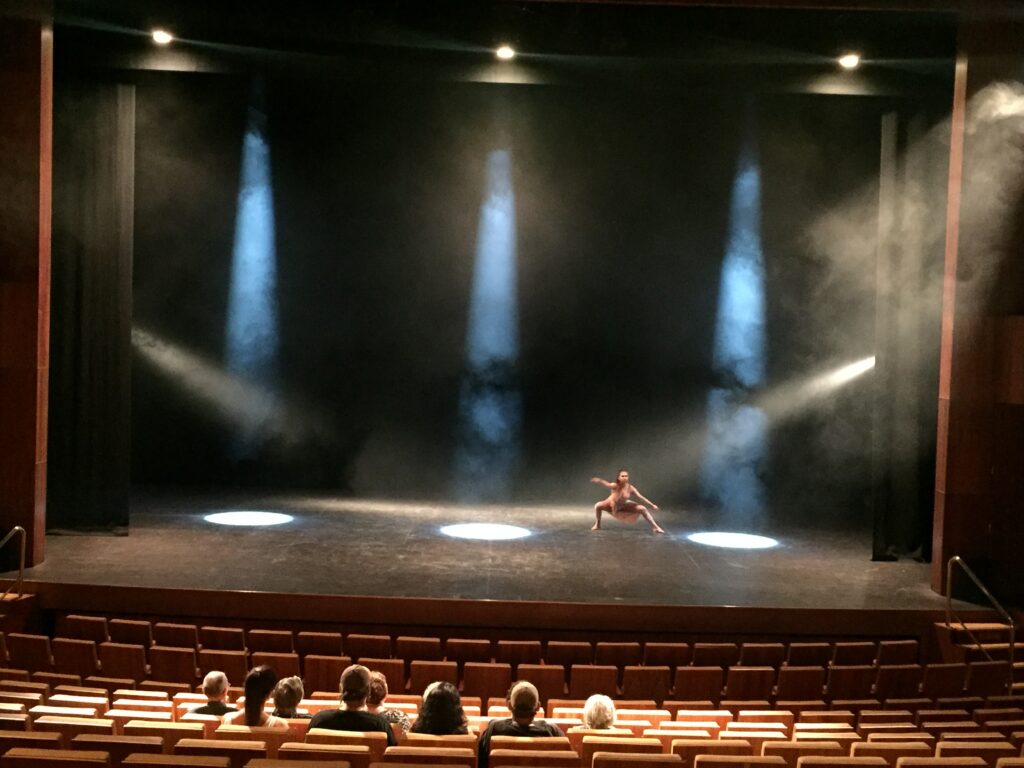
Broome’s Creative Heritage
Kimberley speaks passionately about Broome as a creative hub, mentioning the Pigram Brothers and the iconic musical ‘Bran Nue Dae’ as part of the town’s rich artistic tradition.
Her own early brush with the industry came as an extra in a children’s show. “Me and my whole family were extras. We were at the markets holding a smoothie which was a prop. The TV series was ‘Star Girl’, which featured a very young Mark Coles Smith.”
A particularly bright spot in Broome’s creative landscape is the Goolarri Writers Group, which Kimberley describes as “brilliant”, and is a group that has been running for over 10 years. The weekly meet-ups bring together writers of all kinds (poets, screenwriters, and playwrights) to work on their craft in what she states as a very “low-key, low-pressure environment.”
“It’s very much just an upskilling environment,” she explains, noting that the group regularly has artists who present their work and the process they went through.
The Documentary Heart
Though Kimberley has been expanding into drama with the SBS series “Warm Props” (which she’s worked on as a writer and director) and as a Director’s Attachment on the Netflix series “Surviving Summer,” she admits that “doco will always have my heart. I love documentaries.”
Her documentary credits are impressive, including “Our Medicine,” which follows First Nations professionals working on the medical frontline to achieve better health outcomes for Aboriginal and Torres Strait Islander patients and communities, and “Back to Nature,” a visually stunning ABC TV series featuring actor Aaron Pedersen and writer Holly Ringland exploring the interconnectedness between humans and the Australian landscape.
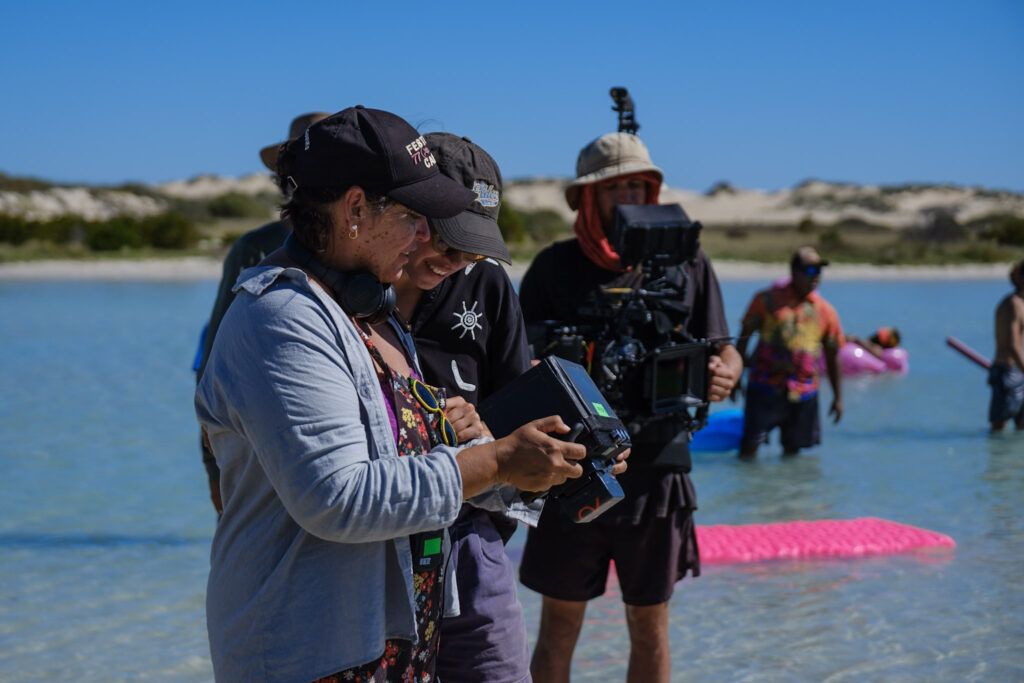
A Future of Stories
Kimberley will be at CinefestOZ this month, not only with her award-winning short but also talking about “Warm Props” and participating in the Cinesnaps School program. It’s fitting work for someone who speaks so passionately about representation and visibility.
“When I was a kid growing up in Broome, you don’t know what is available in terms of careers unless you can see them,” she explains. “I always wanted to tell stories of Broome and show kids in our communities.”
Her influences are clear. She lists filmmakers Karla Hart, Jub Clerc, Genevieve Grieves, Jodie Bell, and Dot West. “Each and every one are trailblazers in film and have nurtured me to think deeply, laugh proper loud and dream up projects.”
As Kimberley continues to build her confidence and develop her craft, it’s clear that her dedication to storytelling (honed around that kitchen table in Broome) will ensure she becomes one of those mentors she so admires, passing on not just stories, but the art of storytelling itself to the next generation of First Nations filmmakers.
Posted in Artist Profile, First Nations, Stories.

